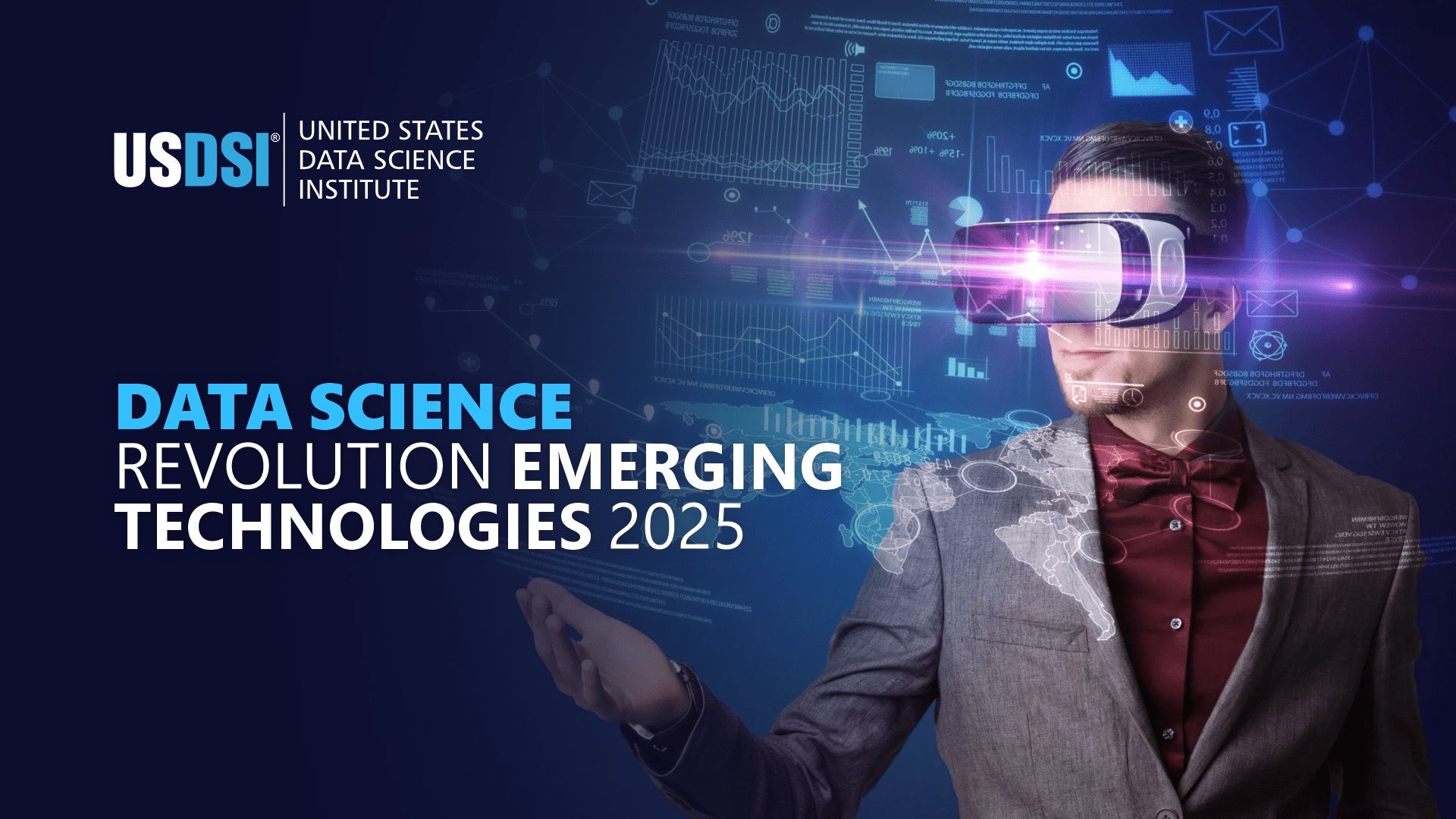
In the grand outline of human history., few phenomena have had the impact on transforming human as the Data Science Revolution. Standing on the precipice of a new era, data science’s emerging technologies in 2025 are not merely how we process information – from Predictive Analytics to K means clustering, these emerging technologies are not changing how we process and consume information, but – they are, at a very pragmatic level, reshaping our entire perception of reality itself, and the very definition of being a human being (pun intended). This article will delve into the Different Emerging Technologies that are driving this paradigm shifting transformation.
The Dawn of a New Age
Throughout human history, there have been several watershed moments in cognitive revolutions – from the invention of fire to the first machine assembly lines, and lean manufacturing to television broadcasting. Now, we are in the midst of perhaps the most significant cognitive revolution yet – the data revolution.
To be fair, what we have come to call data science are not just tools. They are an extension of our cognitive capabilities. And at the heart of this revolution are several key technologies and applications that are currently driving the progress in Data Science.
The Data Revolution and its Components
The heart of the Data Revolution is Machine Learning. It stands in the shift to how to approach problem solving. We now have the ability to train the algorithms of vast amounts of data, allowing them to form patterns and make their own decisions This has profound implications on our daily lives: The implications of this are profound. Machine learning algorithms can now recognize speech, translate languages, detect fraud, and even drive cars. They are becoming increasingly adept at tasks that were once thought to be the exclusive domain of human intelligence.
Deep Learning – Mimicking the Human Brain
Deep Learning has gained considerable prominence in its promise to mimic the human brain. Deep learning has achieved remarkable successes in areas such as image and speech recognition, natural language processing, and game playing. The victory of AlphaGo over world champion Go players marked a significant milestone, demonstrating that AI could excel even in domains requiring intuition and creativity.
But Deep Learning is not just about beating humans at intelligence board games. Detecting images in medical to changes in climate patterns, deep learning is augmenting human capabilities in ways that can have a massive impact on the planet and our day-to-day lives.
Big Data- The Fuel Fueling the Data Revolution
If you can fathom the Machine Learning algorithms and Deep Learning as the engines of the DATA revolution, then DATA cannot be left far behind. Big Data is the fuel powering these machines and the exponential growth in data in recent years and the birth of Data Science is the confluence of these two massive components for Data Scientists to succeed. As the volume, velocity and veracity of data grows exponentially, we need to remember that data is not a just a resource to be exploited, but this abundance of data presents a challenge, the first being storage. How do we store such humongous amount of data so that it can be easily accessed and analyzed. Data quality and reliability both are crucial factors here, and how we analyze this data will determine the future fabric of society.
Democratizing Data Science: Cloud Computing
Widely hailed as a game-changer in the world of Data Science, Cloud Computing provides access to vast computing resources. It has democratized the very discipline by leveling the playing field by providing access to vast compute resources to even small startups now, unlike what was the exclusive domain of large multinational companies till now.
This democratization has accelerated innovation in Data Science. It allows data engineers to experiment with massive datasets and extremely complex algorithms and ML models.
Cloud computing has also played the role of the Great Leveler for Data Science. Scientists around the world today can easily share data and models, accelerating the rates of Scientific discovery by leaps and bounds.
Livin’ On the Edge
While cloud computing has been nothing short of transformative, it still has latency in its computing because of the location of the data center hosting the cloud. It is believed that processing the value of the data closer to its source is far more efficient. Enter Edge Computing, which involves performing data processing on-the-spot or as near as possible to the data source. The biggest advantage in Edge Computing is particularly for mission critical for applications that need real-time processing. It remains all pervasive in the world of technology which requires real time processing, such as autonomous vehicles and or Industrial IoT systems. However edge computing carries with it several security risks, which, ironically, engineers are now using the power of AI/ML to solve, which is one of the several critical role AI/ML uses to solve security concerns.
Conclusion – The Imperative of Professional Certification
Standing on the precipice of this data driven future, the role of Professional Certification in Data Science becomes increasingly crucial. They have become the architects of the digital world. These are the ways in which include continuously updated skill-sets, ethical standards, building trust within the organization and overall rapid career development. With the development of these certification programs, it is crucial to not only cover technical skills but also critical thinking, ethical reasoning, and the ability to communicate complex to non-technical backgrounds.
As we embrace the transformative potential of data science, let us also embrace the responsibility that comes with it. Let us ensure that the architects of our digital future are not just technically proficient, but also ethically grounded and socially responsible. For in their hands lies not just data, but the very fabric of our future society.
This website uses cookies to enhance website functionalities and improve your online experience. By clicking Accept or continue browsing this website, you agree to our use of cookies as outlined in our privacy policy.